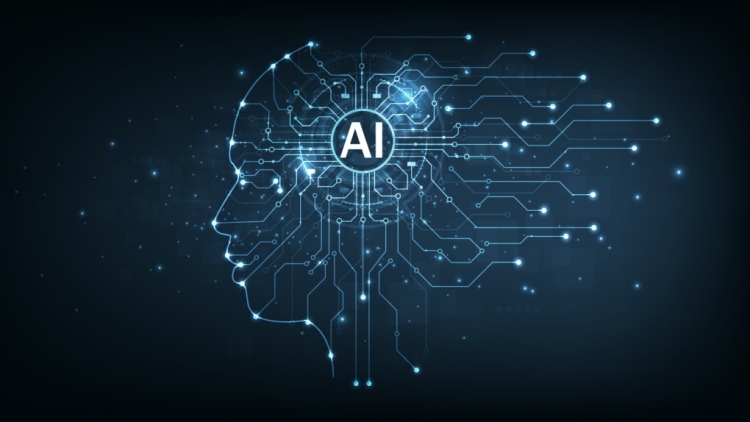Artificial Intelligence and medical products
U.S. Food and Drug Administration (FDA)
What is Artificial Intelligence?
The FDA describes Artificial Intelligence (AI) as a machine-based system that can make predictions, recommendations, or decisions to influence real or virtual environments for a given set of human-defined objectives.
AI systems use machine and human based inputs to perceive real and virtual environments; they abstract these perceptions into models through analysis in an automated manner, and use the model inferences to formulate options for information or action. AI includes machine learning, which is a set of techniques that can be used to train AI algorithms to improve performance of a task based on data.
How Does AI Intersect with Medical Products?
AI has emerged as a transformative force. The Food and Drug Administration is responsible for protecting the public health by ensuring the safety, efficacy, and security of human and veterinary drugs, biological products, and medical devices, and by ensuring the safety of our nation’s food supply, cosmetics, and products that emit radiation.
The FDA landing page (fda.gov) serves as your gateway to a wealth of information, resources, and insights into the intersection of AI and medical products. Learn more about how the innovative integration of AI at fda.gov.
FDA Commissioner Robert Califf, M.D.
Dr. Califf is an American cardiologist who currently serves as the 25th Commissioner of the Food and Drug Administration. In Dr. Califf's blog, Catching up with Califf, he discusses the topic, Harnessing the Potential of Artificial Intelligence:
"At the FDA, we’ve been working for years to anticipate and prepare for the challenges of Artificial Intelligence (AI), and also to harness its potential. Some in the nonscientific community may be surprised by the seemingly sudden amount of attention on AI. But for scientists and regulators, this issue is not new — we’ve seen it coming for a long time, and I’d like to catch up with you today on this exciting topic.
AI Enables Extraordinary Advances in Medical Products and Food
AI has the potential to enable major advances in the development of more effective, less risky medical products and more nutritious food. To give you an idea of its impact, consider that since 1995 the FDA has received over 300 submissions for drugs and biological products with AI components, and more than 700 submissions for AI-enabled devices.
Submissions have included aspects related to drug discovery and repurposing, enhancing clinical trial design elements, dose optimization, endpoint/biomarker assessment, and postmarket surveillance. These submissions also cover a growing diversity of medical devices that leverage AI to improve clinical workflows and patient experiences or outcomes in addition to sophisticated prediction algorithms.
And the areas of nutrition and food safety are on the verge of a revolutionary improvement due to the combination of digitization, AI and growth in computing power.
AI Technologies Facilitate Internal Operations and Regulatory Processes
The FDA is also exploring the use of AI technologies to facilitate our internal operations and regulatory processes, which could benefit both agency experts and the public by streamlining workflows and facilitating high quality, novel medical products more quickly reaching the patients who need them.
At its most basic, AI can strengthen our operational systems and bring increased productivity, opportunity, and efficiency to our work, helping us process and analyze complex data faster, including data from medical imaging or digital health technologies, for example. We can free up staff by automating repetitive administrative functions and enable them to focus on more complex meaningful activities to weigh the evidence and arrive at better decisions. Our workforce should also have more time to explain those decisions to the public and learned intermediaries in the biomedical and clinical world.
The AI landscape is expanding every day and there is a lot more to say on this topic. We’ve issued: “Artificial Intelligence & Medical Products: How CBER, CDER, CDRH, and OCP are Working Together,” and I hope you’ll check it out. The paper reaffirms our commitment to promoting the responsible and ethical development, deployment, use, and maintenance of safe and effective medical products that incorporate or are developed with AI.
Catch up with you next time."
Visit fda.gov/media/177030/download?attachment to learn how the agencies Dr. Califf mentioned are working together:
Center for Biologics Evaluation and Research (CBER)
Center for Drug Evaluation and Research (CDER)
Center for Devices and Radiological Health (CDRH)
Office of Combination Products (OCP)
For specific information related to biological products, please visit:
fda.gov/vaccines-blood-biologics/artificial-intelligence-and-machine-learning-aiml-biological-and-other-products-regulated-cber.
For specific information related to drug products, please visit:
fda.gov/science-research/science-and-research-special-topics/artificial-intelligence-and-machine-learning-aiml-drug-development.
.
For specific information related to devices, please visit:
fda.gov/medical-devices/digital-health-center-excellence
and
fda.gov/medical-devices/medical-device-regulatory-science-research-programs-conducted-osel/artificial-intelligence-program-research-aiml-based-medical-devices.
For more information on the laws, regulations, executive orders, and memoranda that drives the U.S. Department of Health and Human Services (HHS) AI efforts, please visit:
hhs.gov/about/agencies/asa/ocio/ai/statutes/index.html.
